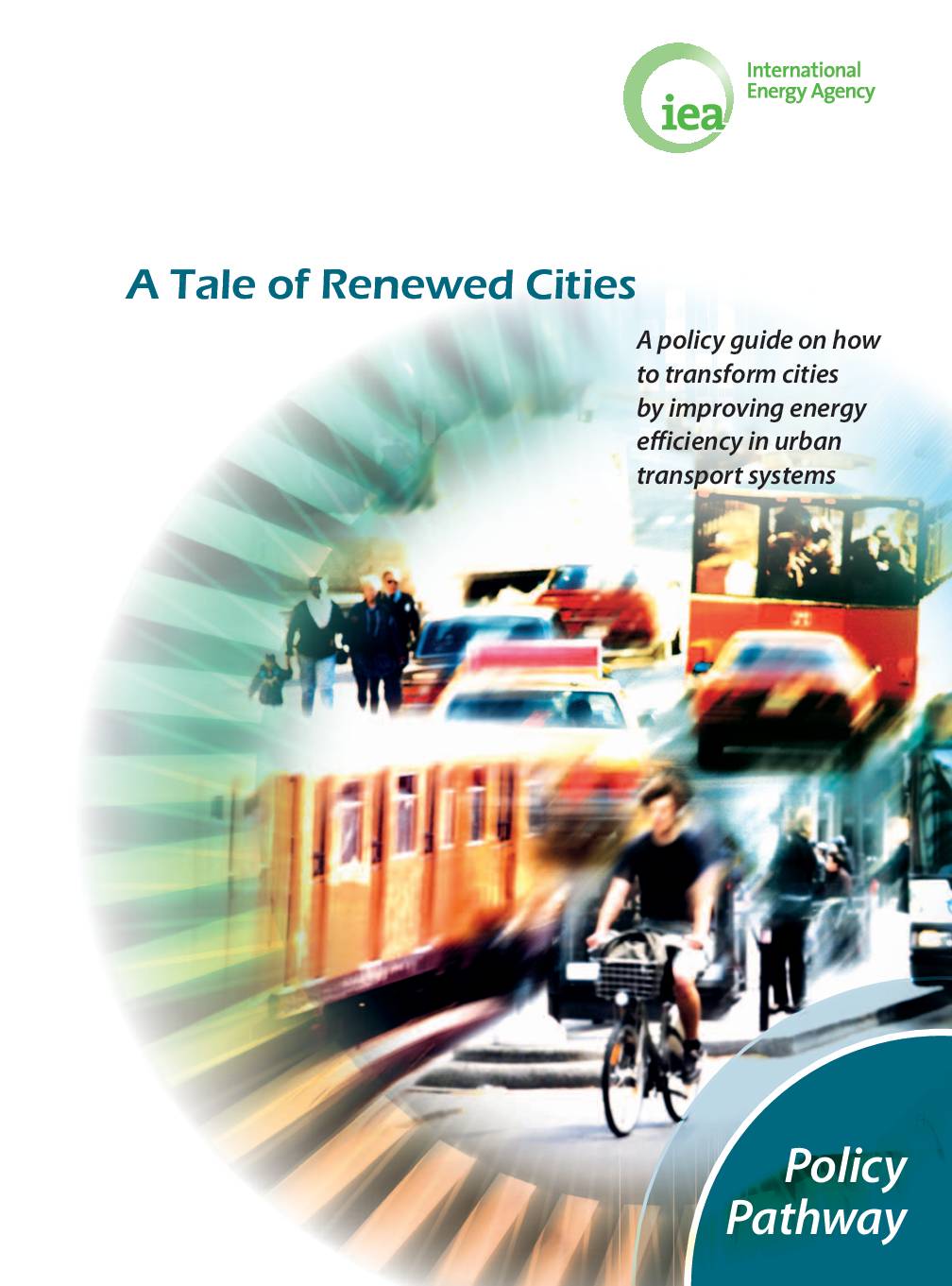Transport currently accounts for half of global oil consumption and nearly 20% of world energy use, of which approximately 40% is used in urban transport alone. The IEA expects urban transport energy consumption to double by 2050, despite ongoing vehicle technology and fuel-economy improvements. While increased mobility brings many benefits, the staggering rate of this increase creates new challenges. Urgent energy-efficiency policy attention will be needed to mitigate associated negative noise, air pollution, congestion, climate and economic impacts, all of which can cost countries billions of dollars per year.
This report highlights lessons learned and examples of good practice from countries with experience implementing a wide range of measures to improve energy efficiency in urban transport systems.
Part of the IEA Policy Pathway series, A Tale of Renewed Cities sets out key steps in planning, implementation, monitoring and evaluation to achieve improved energy efficiency in urban transport systems. The Policy Pathway series aims to help policy makers implement the IEA 25 Energy Efficiency Policy Recommendations.
Share this

Sectors: Cities, Cross cutting, Renewables
Country / Region: Global
Tags: air pollution, cities, corporate reporting, economic cost, economic impacts, economic impacts of development, energy, energy efficiency, global climate, impacts on systems and sectors, lessons learned, pollution, urbanKnowledge Object: Publication / Report
Published by: IEA
Publishing year: 2013
Author: IEA
